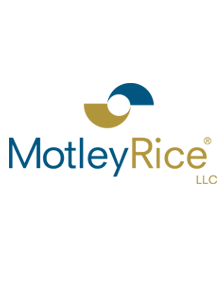
SEC whistleblower office reports another promising year, reaffirms commitment to whistleblower protection and enforcement actions | Causes, Not Just Cases®
by: Motley Rice
The SEC’s Office of the Whistleblower recently submitted its annual report to Congress for the 2019 fiscal year. Eight years after its inception, the SEC’s Whistleblower Program continues to have a significant, positive impact in protecting not only whistleblowers, but investors, markets and by extension, the public. In addition, the Whistleblower Program allows the SEC to bring enforcement actions in considerably less time, using fewer resources. In short, the SEC’s Whistleblower Program is good for all involved, and it shows in a quick glance at the numbers:
- The SEC received more than 5,200 whistleblower tips in 2019.
- From those thousands of tips, the SEC paid $60 million in awards to eight whistleblowers – a clear indication of the value of the information provided by those individuals.
- Also noteworthy, the SEC ordered wrongdoers to pay more than $2 billion in sanctions over the past eight years based on crucial information that would not have been known if it weren’t for the whistleblowers.
Employees aren’t the only ones who can be whistleblowers
The types of securities violations that the Office of the Whistleblower receives information on include offering fraud, such as Ponzi schemes, false or misleading statements in marketing materials and other documents, false pricing information, accounting violations, internal controls violations, manipulation and violations of the Foreign Corrupt Practices Act (FCPA), and other misconduct. Although 69% of award recipients to date were current or former employees at the companies that they reported for alleged wrongdoing, it is not a requirement to submit a whistleblower complaint or to be eligible for an award. Moreover, non-employees may also be eligible for whistleblower protections under the program. As stated by Jane Norberg, Chief of the SEC's Office of the Whistleblower, “[t]he SEC's whistleblower protections broadly protect not just employees, but anyone who seeks to report potential securities law violations to the Commission."
In a recent action, the SEC reaffirmed its commitment to protecting varying types of whistleblowers who seek to report potential violations. The defendant in that case, online auction portal Collectors Café, was accused of raising millions of dollars by misleading investors into believing that it would use the money to develop a website for the auction of sports memorabilia and other collectibles, as well as an affiliated social network and television show. Instead of using the funds for these purposes, the company and its executives allegedly misappropriated more than 25% of the money raised, including $6.1 million in cash, as well as additional charges on the company’s credit card to fund their extravagant lifestyle.
The defendants attempted to prevent investors from reporting their alleged fraud by conditioning the return of investor funds on an agreement that the investors entered into that contained confidentiality clauses. According to the company, these clauses prohibited investors from communicating with law enforcement, including the SEC. In one instance, the defendants even filed a lawsuit against an investor seeking punitive and compensatory damages and the repayment of the investor’s returned funds for allegedly breaching the confidentiality clauses by communicating with the SEC.
Notably, the SEC took action seeking to hold the defendants accountable not only for their fraudulent stock offerings, but for violations of the SEC's whistleblower protection laws. The SEC claims that the company’s conduct impeding investors from communicating with the SEC violated rule 21F-17 of the Securities Exchange Act of 1934, part of the SEC’s whistleblower program rules. In addition to protecting whistleblowers who have reported possible securities law violations from retaliation, Rule 21F-17(a) prohibits any person from taking any action to prevent an individual from contacting the SEC directly to report a possible securities law violation. The rule states: “[n]o person may take action to impede an individual from communicating directly with the Commission staff about a possible securities law violation, including enforcing, or threatening to enforce, a confidentiality agreement…with respect to such communications.”
While the SEC’s whistleblower program is still relatively young, its value and potential are immeasurable. The protections it offers against retaliation for simply speaking the truth and holding powerful entities accountable is a key aspect of the program and one that makes it stand out. In a previous blog post I discussed how important it is that potential whistleblowers consult with a knowledgeable attorney to help navigate this still-developing area of law to ensure that their rights are protected. For more information on why it’s worth it to report to the SEC, click here.
Authored by Rebecca M. Katz, a Motley Rice attorney from 2012-2015 and 2019-2025.
Subscribe to our blog if you’d like to have more content like this sent directly to your inbox.